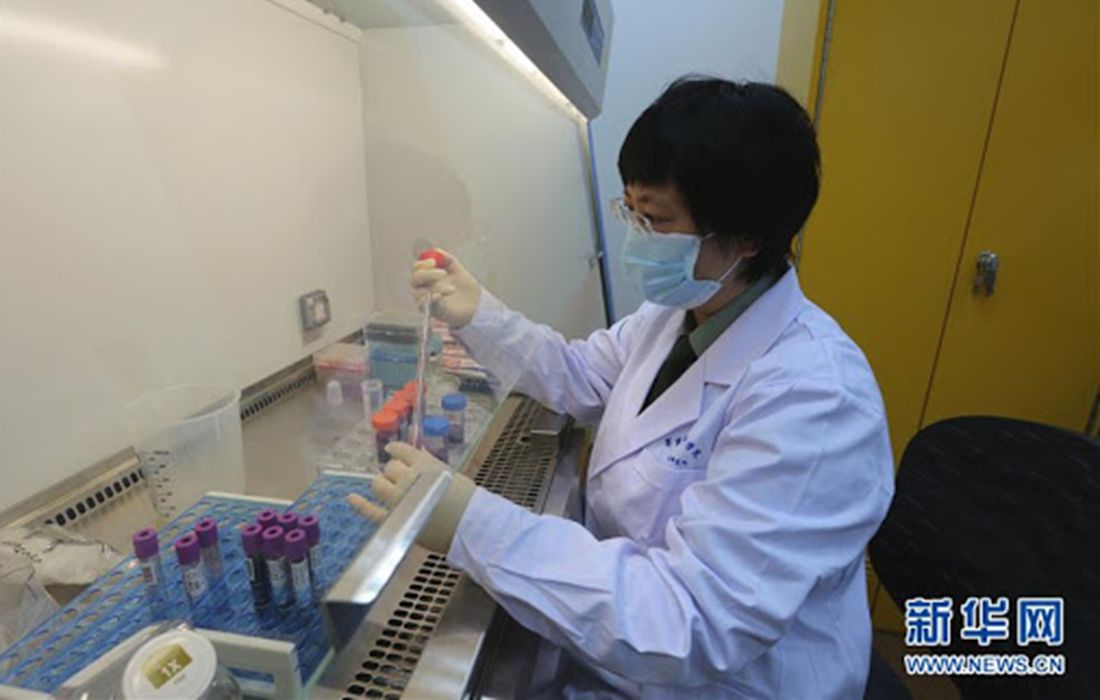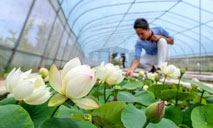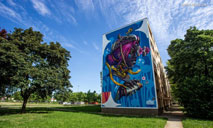A COVID-19 nasal spray vaccine applies for emergency use in China

Chen Wei Photo: Xinhua
A COVID-19 nasal spray vaccine has applied for emergency use to China's National Medical Products Administration, the prominent Chinese vaccine developer, Chen Wei, revealed on Thursday.
The nasal spray vaccine, jointly developed by Chen's team and the Chinese biotech company, CanSino Biologics Inc, only requires one-fifth of the amount of the injectable adenovirus vector COVID-19 vaccine and doesn't need cold-chain storage and transport, Chen introduced in a speech delivered at the Pujiang Innovation Forum in Shanghai on Thursday.
This new vaccine is expected to improve accessibility and reduce the cost of COVID-19 vaccination, Chen said.
Vaccine industry insiders reached by the Global Times said they are optimistic with this new type of vaccine which they believe is better than traditional injectable shots in terms of efficiency and convenience.
The current injectable COVID-19 vaccine is 0.5 milliliter per dose, said Shanghai-based vaccine expert, Tao Lina. If Chen's nasal spray vaccine can achieve the same protective effect with only a 0.1 milliliter dose, "that means it has higher immune efficiency," Tao told the Global Times.
The higher efficiency may come from the way the vaccine enters body, Tao said. It is directly inhaled through the nose, which mimics the natural infection of the respiratory virus COVID-19, and then it forms a mucosal immunity, he explained.
Also, with a dose only one fifth that of the injectable COVID-19 vaccine, producers can make five times as many nasal spray vaccines under the same production capacity for injectable vaccines, which can contribute to speeding up vaccination in China, Tao added.
Over 700 million doses of COVID-19 vaccines had been administered in the Chinese mainland as of Tuesday, China's National Health Commission informed on its website on Thursday.
Zhang Wenhong, a leading infectious disease expert, believes that China will be able to reopen to countries with good inoculation and low infection rates in the first half of 2022, but that will still depend on how many people in the country have been inoculated.
Countries with a higher inoculation rate such as Israel, the US and the UK will make deals to resume people-to-people exchanges in the second half of this year. But the date for a resumption of global travel remains unknown, as that would be determined by the overall vaccination rate and speed of mutated variants, said Zhang at the Boao Forum for Asia in Qingdao, East China's Shandong Province on Wednesday.
Gao Fu, an academician from the Chinese Academy of Sciences and head of the Chinese Center for Disease Control, recently said that it seemed that the virus evolves like an influenza virus.
"We probably need to receive jabs against COVID-19 every year, just like how we coexist with influenza," said Gao, adding that when there is an immunity barrier against COVID-19, the regular jabs will be used to prevent critical cases rather than simply avert infections.
Photos
Related Stories
- Biden announces sharing plan for 25 mln COVID-19 vaccine doses
- Over 700 mln COVID-19 vaccine doses administered across China
- India's top court asks federal gov't to show data on procurement of COVID-19 vaccines, slams vaccination policy
- U.S. researchers start testing mix-and-match COVID-19 vaccine boosters
- China committed to helping world eliminate vaccine divide
Copyright © 2021 People's Daily Online. All Rights Reserved.










